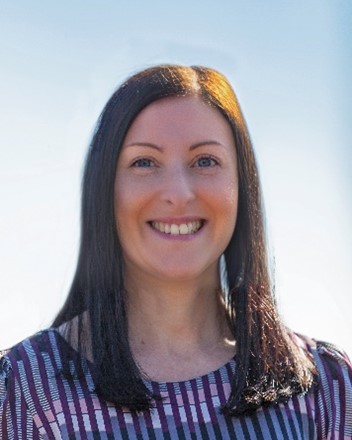
Professor Lezley-Anne Hanna PFHEA
Background
Professor Lezley-Anne Hanna holds the Chair of Pharmacy Education in the School of Pharmacy and is currently a Director of Education (Pharmacy). Lezley-Anne is a member of the Pharmaceutical Society NI and a Faculty Fellow of the Royal Pharmaceutical Society. In addition to undergraduate and postgraduate education, Lezley-Anne has developed and delivered professional training to pharmacists and dentists and contributed to the Pharmacy Schools Programme (Key Stages 1 and 2). She has experience of writing and reviewing questions for the pharmacy registration assessment (the examination that determines professional membership), reviewing National Teaching Fellowship applications for Advance HE, evaluating pharmacy scholarship applications to allocate funding, and being an External Examiner. Since completing her PhD, she has published in internationally recognised journals on various topics related to pharmacy education and practice including: assessment and feedback, mental health and resilience, professionalism, and over-the-counter consultations and evidence-based decision-making. Lezley-Anne has won five University educational accolades including an award for international student support and mentoring, and an external pharmacy practice award for innovation (co-developing a mobile app ‘OTC Consult’). Moreover, she was awarded Senior Fellowship of the Higher Education Academy in 2017 followed by Principal Fellowship in 2019, and is a National Teaching Fellow (since 2018). Further information is available at: https://pure.qub.ac.uk/en/persons/lezley-anne-hanna.
When asked to reflect on “what does being a Principal Fellow mean to you?” Professor Hanna answered:
“Since gaining Principal Fellowship, I have an increased confidence in my ability to strategically transform education and lead teams of educators, and to champion continual professional development and educational excellence among colleagues. There have been opportunities for collaboration and, through networks and communities of practice linked to Principal Fellowship, I feel supported by others who collectively share a passion for teaching and learning for student success in Higher Education. We want to develop and improve our teaching strategies and policies and have a positive impact on the success of our students. Being able to have open and honest discussions among a diverse group of colleagues is important as it helps correct introspection and enables me to learn more. As Frank Clark said, “We find comfort among those who agree with us, but growth among those who don’t.” This has been particularly relevant and useful in the last two years when I have had the responsibility of leading the transformation of the Master of Pharmacy (MPharm) degree programme aligned to 2021 Standards for the initial education and training of pharmacists (https://www.pharmacyregulation.org/sites/default/files/document/standards-for-the-initial-education-and-training-of-pharmacists-january-2021_final-v1.3.pdf). This represents the biggest change to pharmacy education in the past twenty-five years since the 4-year MPharm degree began in 1997 (https://nihealthcare.com/wp-content/uploads/2023/02/NIHR-July-2022-website.pdf). Thankfully we obtained a successful accreditation outcome in March 2023 with no conditions or recommendations.
I found the application process for Principal Fellowship to be a very insightful and rewarding one, and something that has influenced my practice, including my scholarship, ever since. It provided an opportunity for much self-reflection and examination. I have a greater appreciation about quality and standards and the need to regularly evaluate our educational approaches. It is important to question why we do things the way we do and to ascertain what student success really looks like. Being data-orientated about the sustained value and impact of the educational approach allows me to identify gaps in the evidence-base, meaningfully contribute to the development of effective strategies and policies, and justify why change is needed.
Lastly, I consider that gaining formal validation and recognition through Principal Fellowship raises the profile of education for both the individual and the Higher Education Institution, and particularly to help education gain parity with research. I would like to thank my Pharmacy colleagues within and beyond the University, and the Centre for Educational Development, including Karen Fraser, for their support with my Principal Fellow (and National Teaching Fellow) journey.”